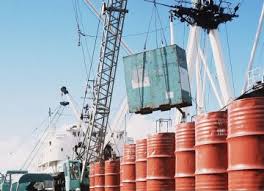
Shell, Total Declare Force Majeure As Nigeria’s Oil Exports Plunge
Exports of Nigerian crude oil have suffered a significant disruption as two international oil companies operating in the country declared force majeure on two crude grades.
Force majeure is a legal clause that allows companies to cancel or delay deliveries due to unforeseen circumstances.
Shell Petroleum Development Company of Nigeria Limited, in a statement on Monday, said it declared force majeure on Bonny Light effective 12 noon (Nigerian time) on April 25, 2019.
The oil major said the declaration of force majeure followed the shutdown of the Nembe Creek Trunk Line on April 21, 2019, and declaration of force majeure by the operator of the NCTL, Aiteo Eastern Exploration and Production Company Limited.
The NCTL, a major crude oil transportation channel used for export, evacuates crude to the Bonny Crude Oil Terminal. It is one of the two main pipelines taking Bonny Light grade to the export terminal.
Last week, Aiteo declared force majeure on the NCTL following a fire outbreak, saying it was constrained to shut in injection as well as other related operations into the NCTL.
Amenam, operated by oil major Total, is also under force majeure, Reuters quoted trading sources as saying on Monday.
Both grades of crude are light and sweet, typically suitable for petrol production.
Bonny Light exports had been planned at 222,000 barrels per day in June and 184,000 bpd in May, but trading sources said they were awaiting new loading plans. Shell said the export terminal continued to run.
A port source told Reuters that oil-well shutdowns had reduced Amenam’s daily production and led to force majeure. Exports of Amenam are typically around 100,000 bpd, and trading sources said loadings had been delayed by roughly 25 days.
Two Shell oil workers were kidnapped last week in Rivers State, an escalation that helped prompt state police to step up security operations.
